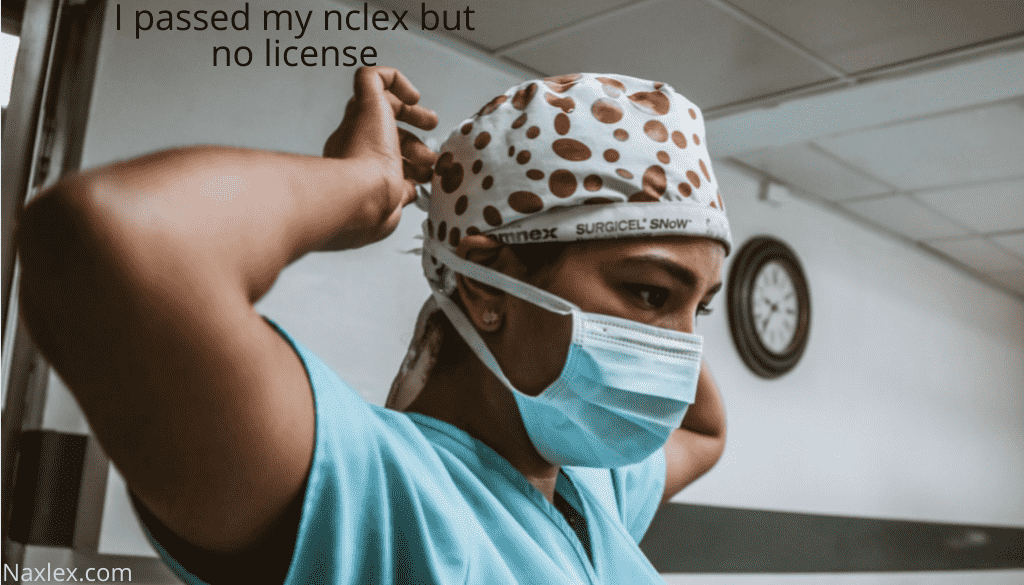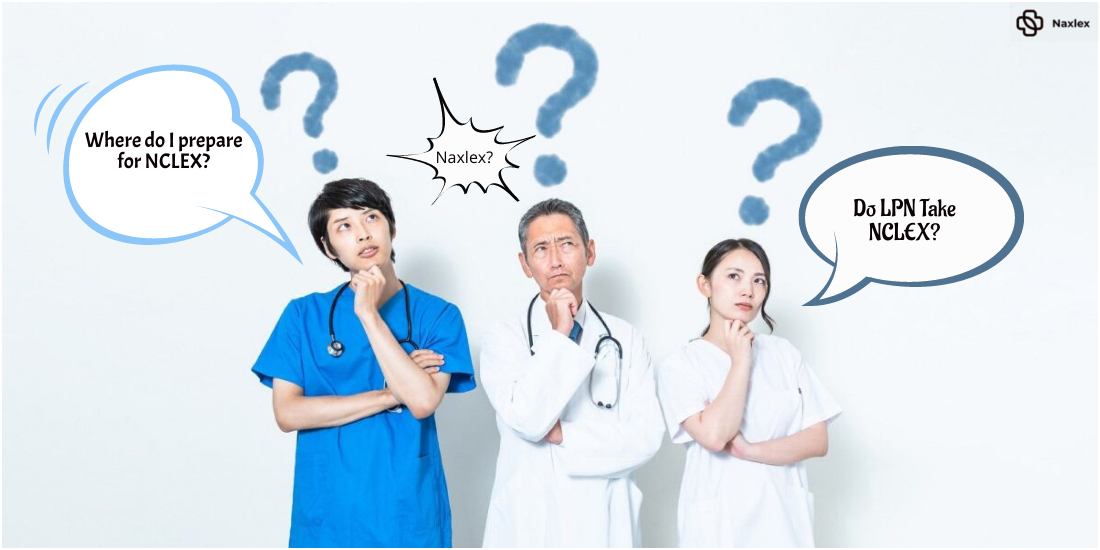Taking the NCLEX is a crucial step for nursing students. It marks the end of their years of education and training. However, what happens when you pass the NCLEX but still have not gotten a license? Such a situation can be confusing and frustrating. This article seeks to answer why going through this phase takes such a long time and what to do in such a situation.
How can Naxlex help?
Naxlex is a reputed service provider with years of experience dealing with proctored and online exams. We offer a lot of help to the students by helping them solve and pass their online examinations. Our qualified staff can also assist you in taking your examinations online, a convenient technique to get your NCLEX certification without anxiety. Try Naxlex today!

Understanding the Licensing Process
After passing the NCLEX, several steps must be completed before you can officially receive your nursing license:
1. NCLEX Results: When you complete the exam, your results are forwarded to the state’s nursing regulatory body (NRB), to which you applied to obtain a license. This usually takes a few days, but it may take longer, depending on how long the NRB takes to process the application.
2. Background Check: Most states have adopted policies that compel aspiring licensees to undergo criminal background checks to be granted an official license. This can entail a process of fingerprinting and a check on one’s criminal record.
3. Application Review: Your application will be assessed to ensure all the stipulated criteria have been fulfilled. This entails checking on your educational background, practice experience, and any other prerequisites depending on your state of practice.
Possible Causes of Licence Delay
Incomplete Application
A significant cause of the delay is incomplete applications. This can be due to a failure to submit documents like official transcripts, proof of clinical hours, or the application fees. Hence, it is essential to pay close attention to the guidance coming from your NRB and ensure that all necessary documents are submitted.
Background Check Issues
A pre-employment background check is an essential factor that must be considered during the licensing procedure. But suppose any problems or inconsistencies are reflected in your background check—for instance, a misdemeanor or any legal cases pending against you. In that case, this may slow down the process of issuing your license. One should not wait until an employer questions something on their record, and it is also helpful to provide all the documents needed to explain any history.
Administrative Backlogs
There tends to be a high volume of application submissions, especially at the end of the year and other similar instances, and this causes delays in processing the many applications. The regulatory bodies may lack adequate staffing, which makes the regulatory systems slow in assessing applications and issuing the respective licenses.
State-Specific Requirements
There are general guidelines for obtaining a nursing license, but the specifics vary from state to state. Some states may have additional requirements, like certain continuing education credits, forms, or proof of prior licenses in the case of a reciprocity application. Applicants need to be informed about the requirements of their respective states and if they have met all the conditions set before applying.
Payment Issues
Ensure there are no unpaid fees, which should have been cleared, and all other balances are settled. Therefore, all your payment information must be complete so that none is missing or incomplete, which may delay your application.
What To Do If You Haven’t Received Your License
If you find yourself in a situation where you have passed the NCLEX but have not received your license, follow these detailed steps:
1. Verify Your Application Status
Most nursing regulatory bodies have online resources that candidates can use to check the status of their applications. Monitoring the status maintains awareness of the status of your application and whether something requires submitting other information.
2. Contact the NRB
Suppose the current information on the online status check is insufficient. In that case, one can obtain further information by contacting the NRB through phone or email. The applicant should be ready to produce their application, NCLEX registration, and other official identification numbers. State your case clearly and proceed to the part where you require more details about what is holding up your matter.
3. Review Your Background Check
If specific problems are found during a background check, they must be resolved. This may mean submitting new documents, such as copies of court decisions or letters explaining the situation. Some NRBs might ask you to provide additional fingerprints or check specific facts about your past.
4. Submit Missing Documents
Suppose any documents are missing from your application. In that case, these should be provided to the relevant body immediately. It could be transcripts, letters of recommendation, and other supporting documents that the student considers valuable in the admissions process. Ensure all the records contain the necessary details and are correctly filled in, signed, and forwarded to the relevant destination by post or to the appropriate website.
5. Follow Up Regularly
Persistence is key. Maintaining constant contact or follow-up can aid in keeping your application relevant to the NRB. Call or email occasionally to monitor the progress of the application. Maintain the business tone and assure the recipient that you will settle the remaining concerns promptly.
6. Seek Assistance
When experiencing significant delays, turning to a professional organization that can provide guidance or support, such as the nursing association, is helpful. In some cases, organizations may have resources or contacts who can speed up the process.
How to Prevent Delays in the Future
To avoid future delays in receiving your nursing license, consider the following tips:
Stay Organized
Maintain a record of all the documents that are necessary to be submitted and the time frame in which they have to be submitted. Double-check everything before submission. Create a particular folder or a digital file to collect all the material and ensure you do not lose track of anything.
Start Early
Filing the prerequisites for the NCLEX should be done several months before taking the test. This entails beginning the background check process early and ensuring you have all the required paperwork. Preparation beforehand can be beneficial because it avoids several problems at the last moment.
Keep Copies
Keep a copy of all the documents you submit for your files. This can range from digital documentation to printed documents and faxes. Duplicates can be a great asset if papers are lost.
Stay Informed
Make sure you are aware of any changes regarding licensing in your state. Sometimes, regulatory bodies can update their processes, requirements, or expectations regarding licensure. So, regular check-ups are the best way to avoid hitting these hitches.
Maintain Communication
Engage your NRB frequently, especially if you face challenges or setbacks in the project. Communicating issues before they arise and being transparent about expectations can help reduce and solve problems more quickly.
Conclusion: I passed my NCLEX but have no license
Obtaining a license after NCLEX is a tiresome and lengthy process, despite all the hustle and bustle that candidates must go through to score well in the examination. To avoid all the above pitfalls, making the necessary adjustments and preparations is essential to helping you transition from being a graduate nurse to a practicing nurse. Keep in mind that this phase will determine your future successful planning in this course to be a nurse and achieve your professional goals.


